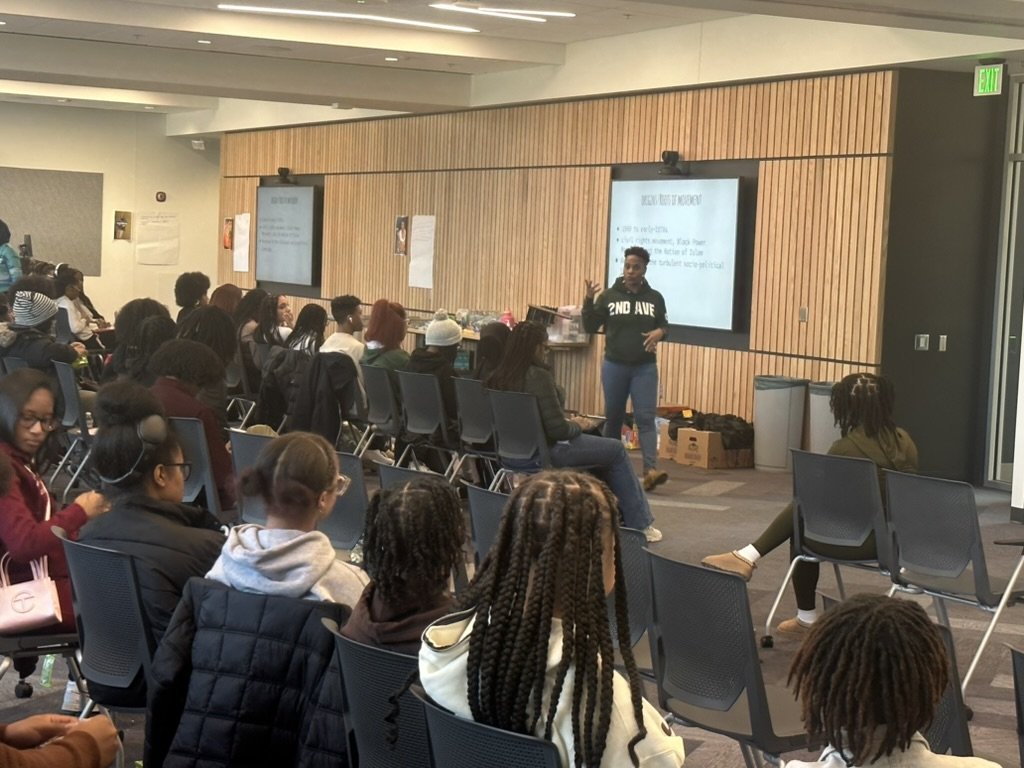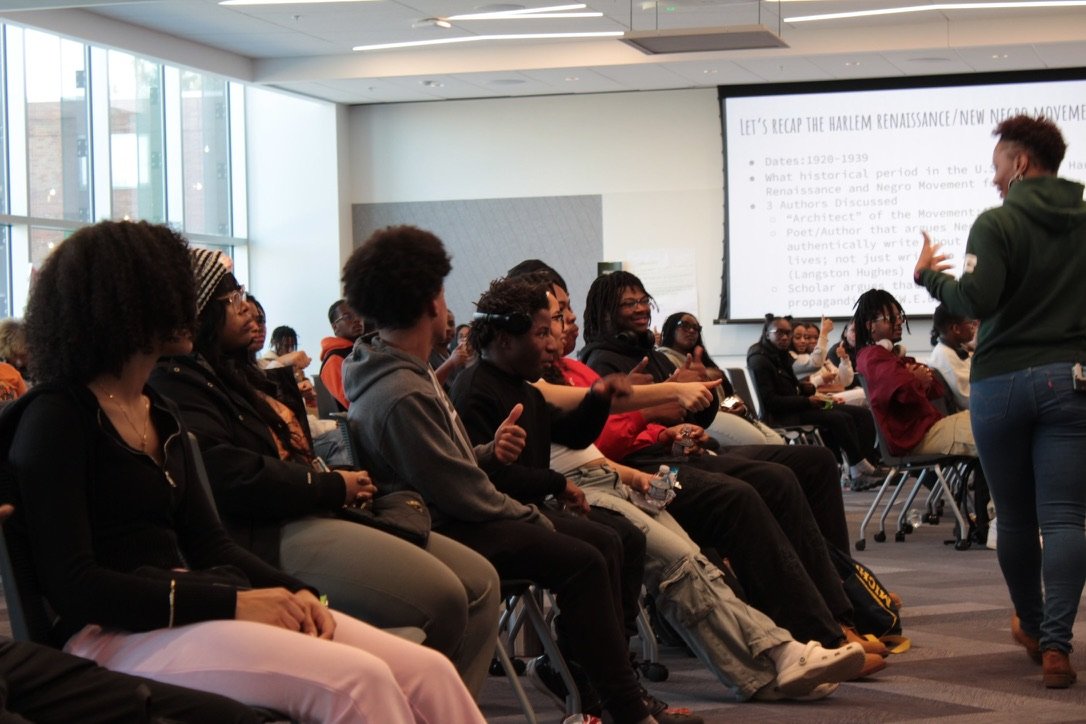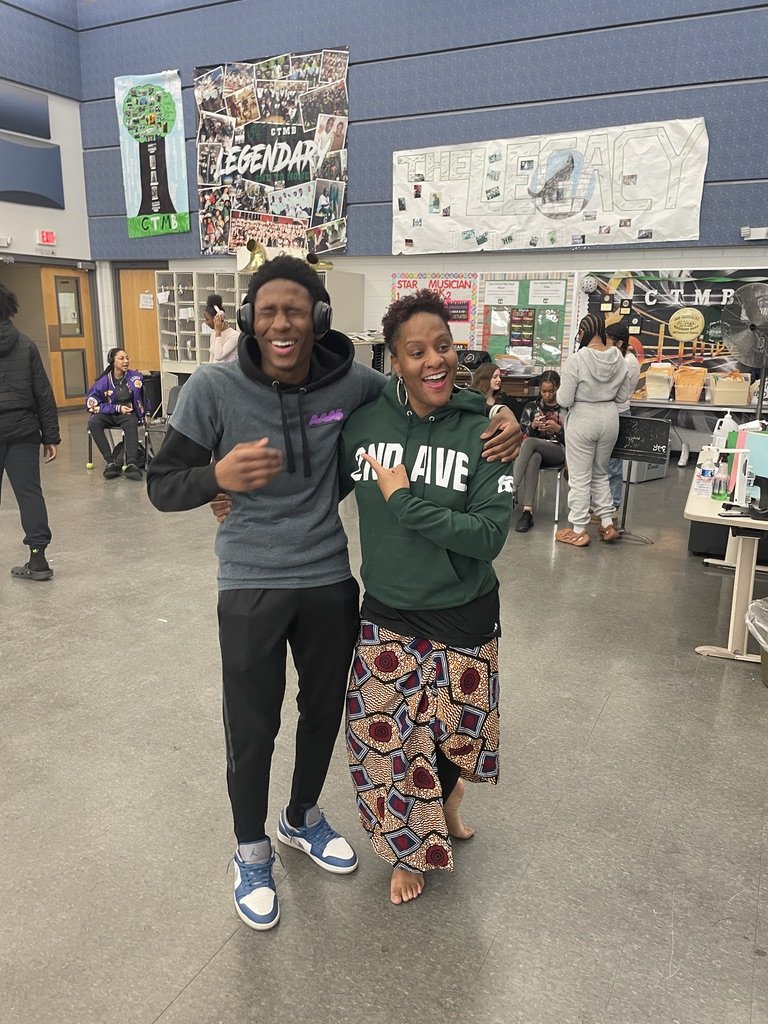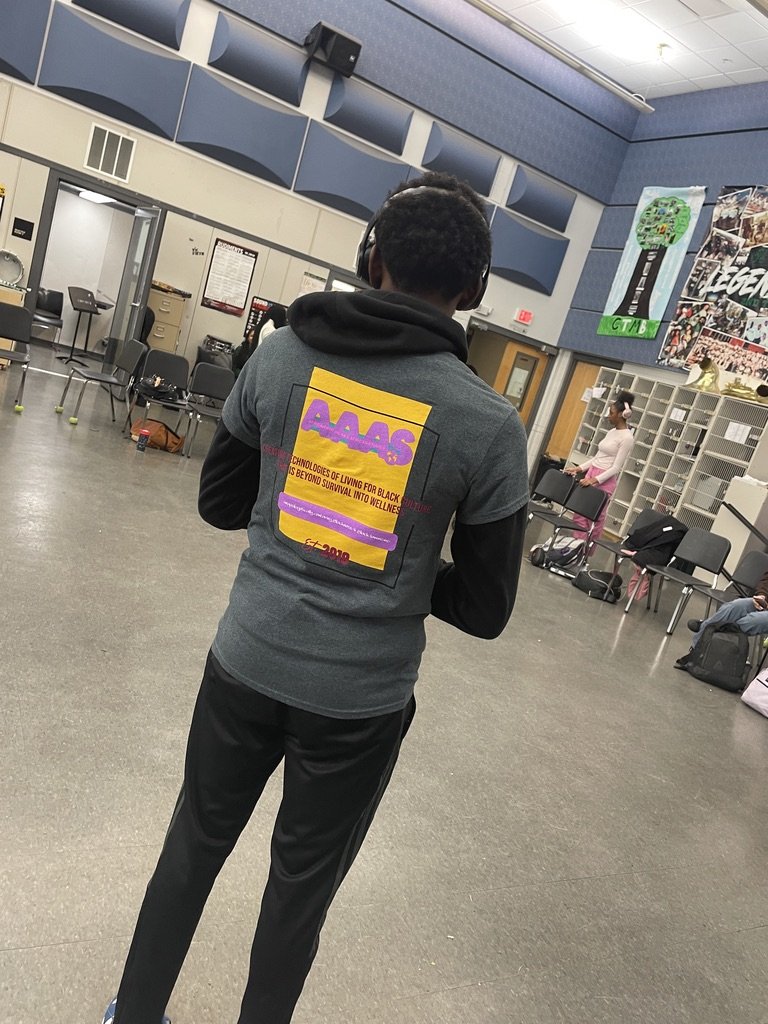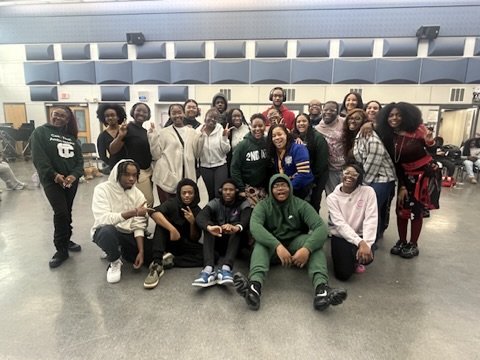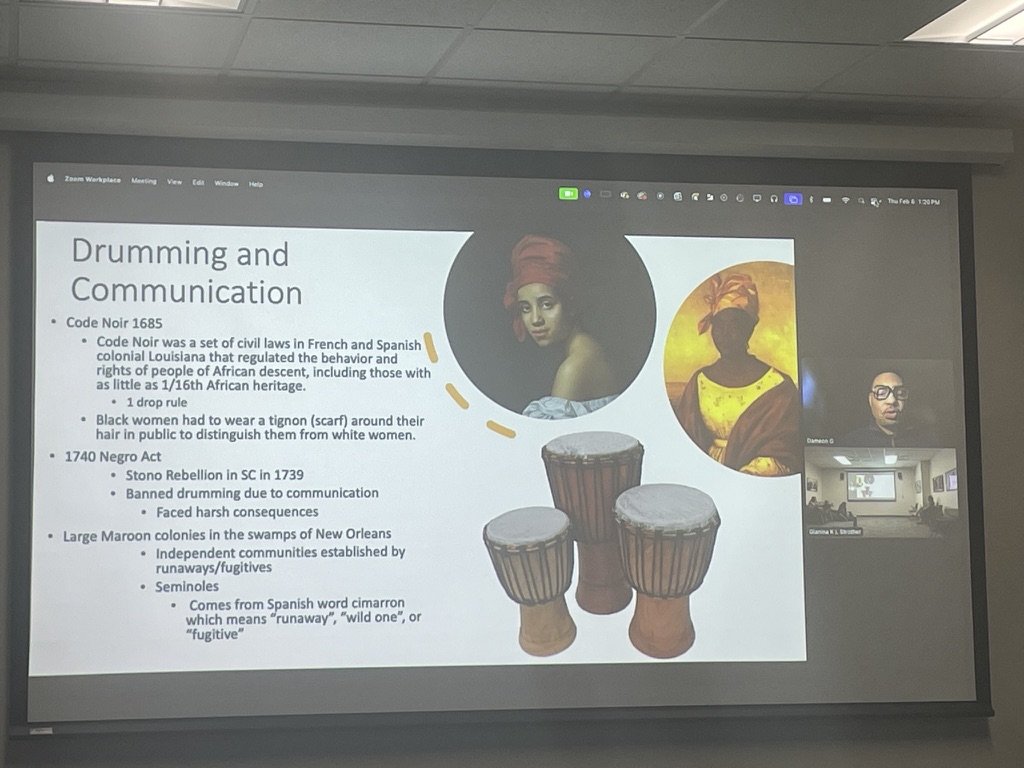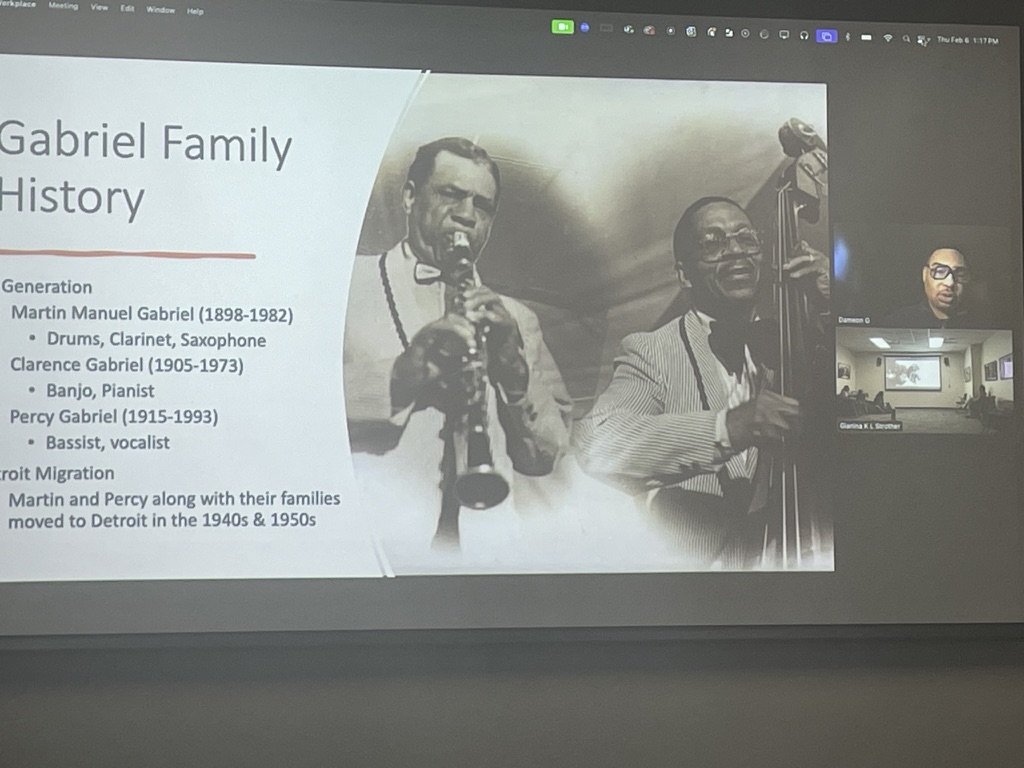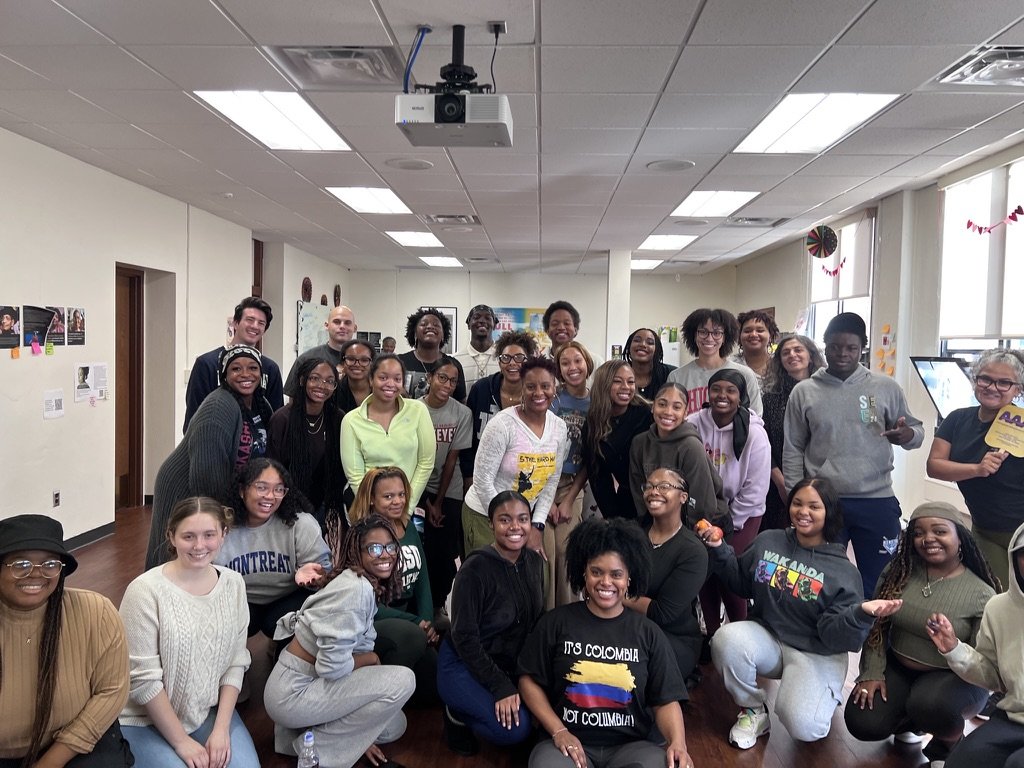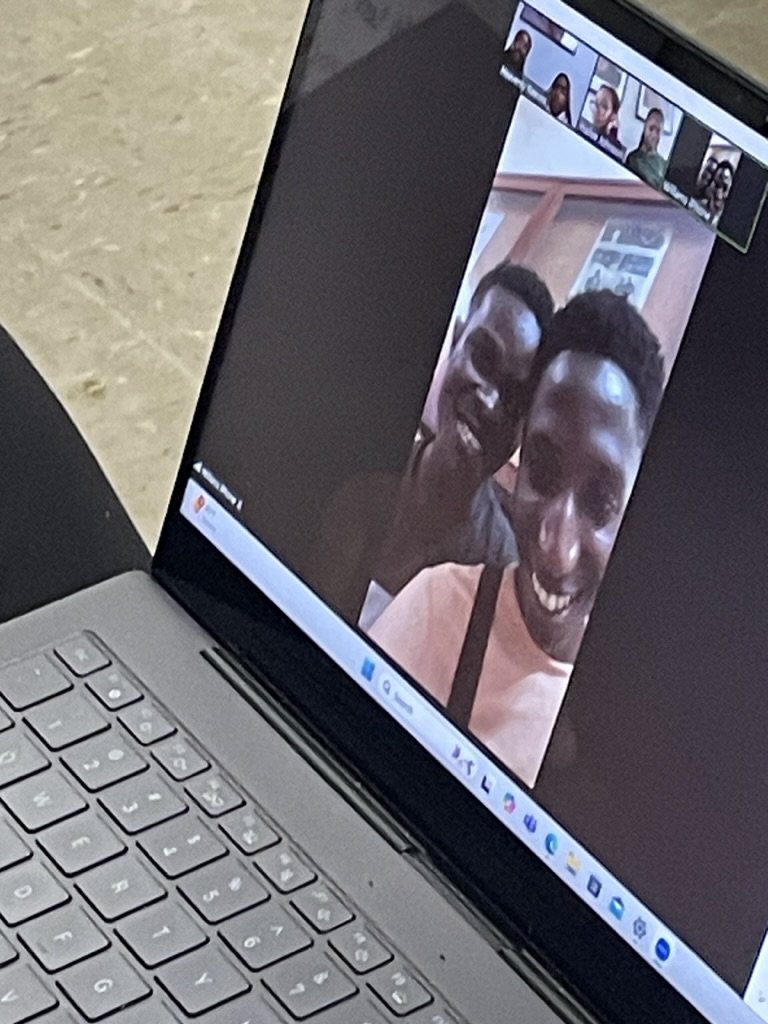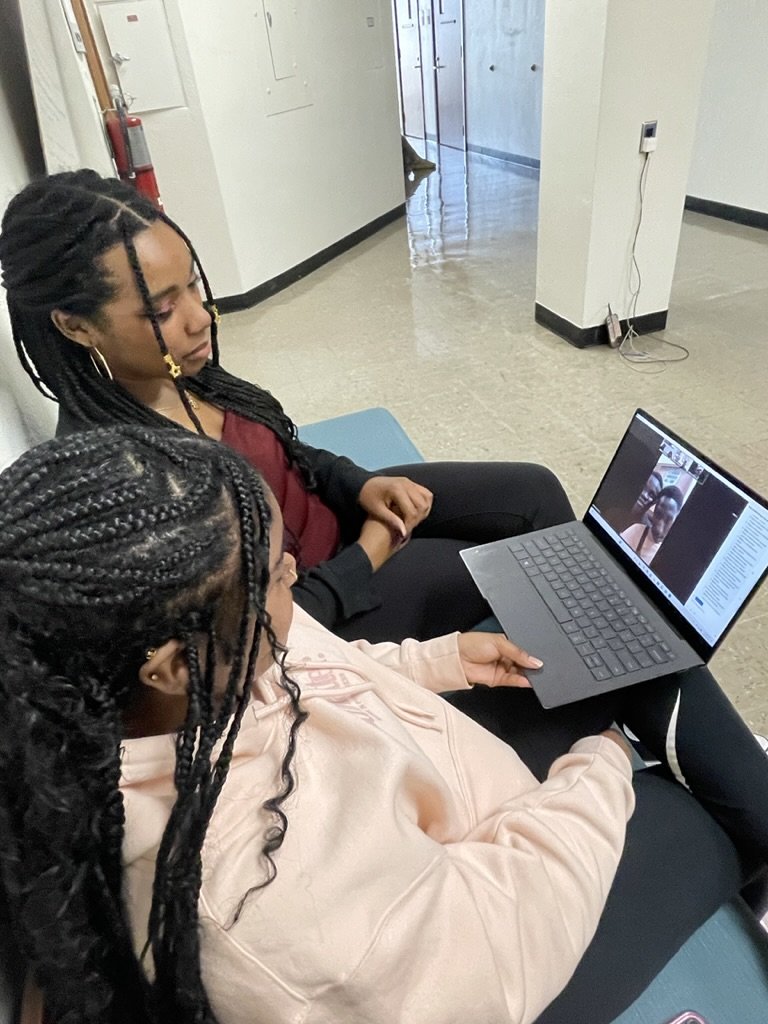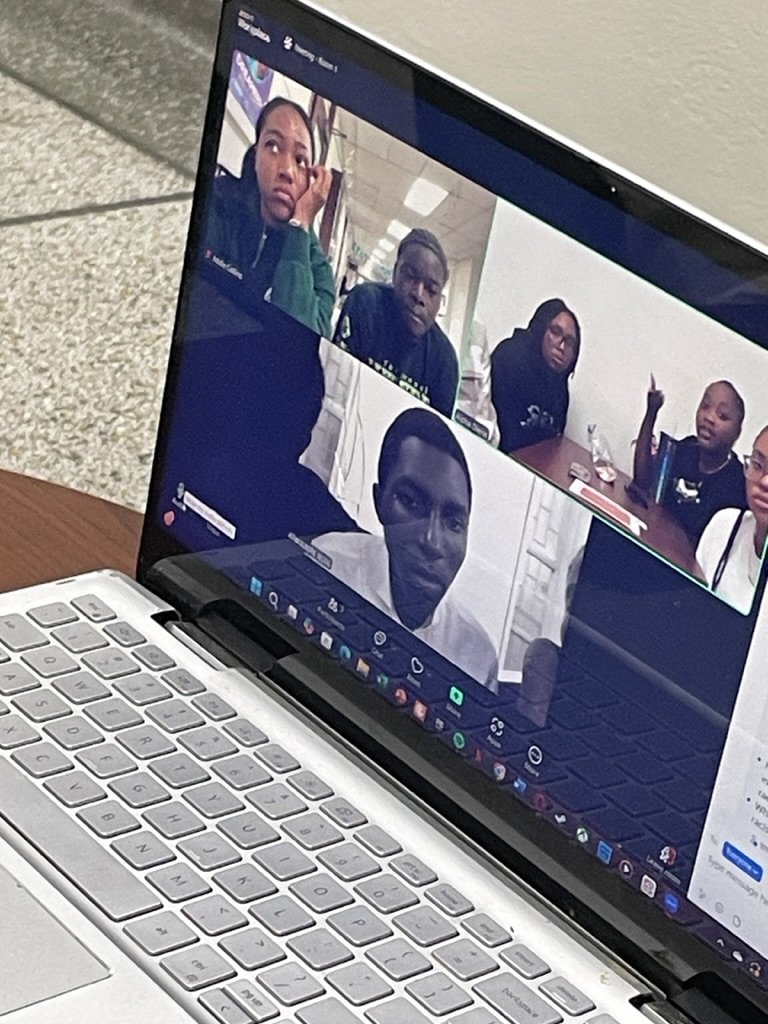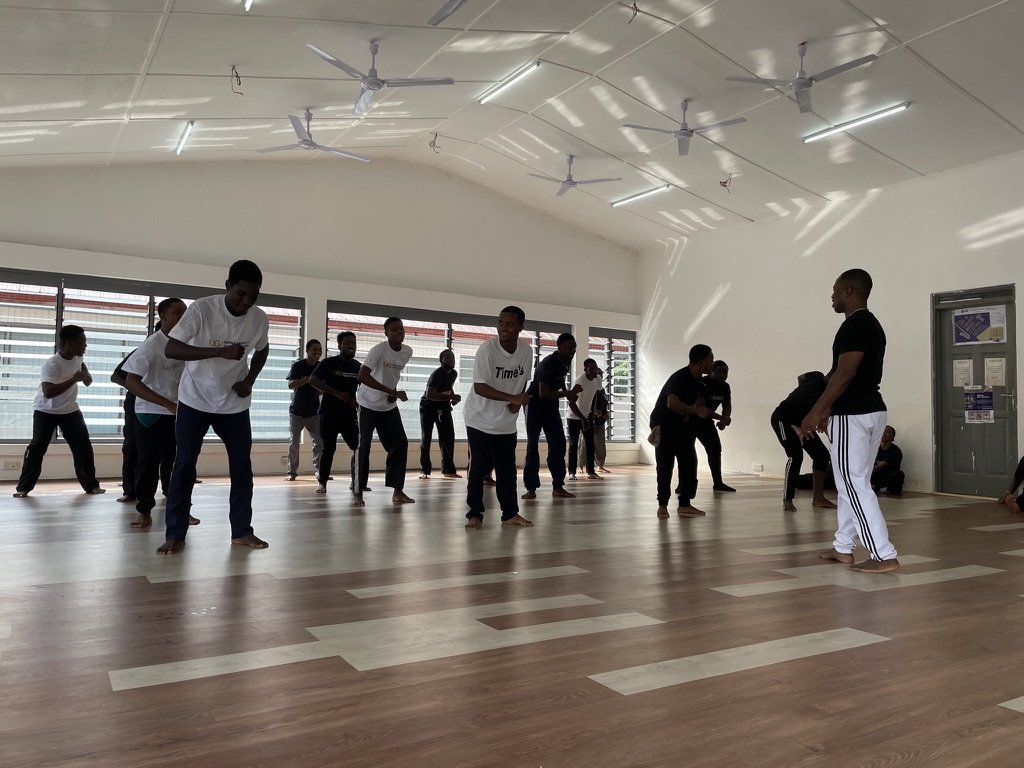In the summer of 2024, I had the opportunity to participate in an introduction to traditional Ghanaian dance at the University of Ghana, Accra (see video 1A), in the dance department of the School for Performing Arts under the instruction of my former collaborator, Dr. Kofi Anthonio. Learning alongside Ghanaian students and participating directly in their classes informed my teaching throughout the semester, particularly as I pursued my teaching certification in the Umfundalai technique.
As part of my research integration, I have begun incorporating Umfundalai into my teaching, specifically in AAAS100 Pathways to African American and African Studies and AAAS402: Producing Culture (see video 2A & 3A) . In AAAS402, I used Umfundalai as a case study to explore how dance functions as both a product and a reflection of culture, highlighting how Dr. Welsh’s travels across the African continent informed the development of the technique. In AAAS100, I connected African folklore—such as the story of “Igbo’s Landing,” in which enslaved Africans chose to co walk into the water rather than submit to bondage—to demonstrate one of the “Umfundalai 7” movements titled, “Igbo Arms.” By centering embodied knowledge, student centered assignments, and creative exploration as core components of my scholarship and pedagogical approach, I aim to highlight the ways in which learning can extend beyond traditional texts.
One student expressed the following sentiment in my teacher evaluation:
“The assignments in this class compared to my other classes were so much better. I was able to engage in the assignments and with my peers, I was able to create different projects based off almost anything that I wanted. There was a lot of hands–on assignments, great group projects, lectures weren't really lectures because she allowed a space for us to have discussions about what we're talking about, unique assignments tailored to every one's learning styles. This method of teaching helps me retain the information I learned. It creates an environment where I feel that I am able to ask questions and not feel rushed to know the information and just move on. This class reminds me of the community I felt while in elementary school where we actually learn and have the discussions. In my other classes the information feels forced down my throat and I am stuck trying to re teach myself but in this class everything is taught in a way that makes you crave more knowledge and want more from the class."
Continuing my commitment towards global engagement, I expanded my collaboration with Professor Sylvia Nannyonga-Tamusuza (Makerere University, Kampala, Uganda) as we were awarded a Collaborative Online International Learning (COIL) grant. This five-week online learning intensive allowed us to develop pedagogical methods for cross-cultural and collaborative teaching. It marked the second time we co-developed a global classroom (see video 1B), engaging students at Makerere University in Kampala, Uganda, and Michigan State University. This initiative provided approximately 60 students with the opportunity to not only learn from faculty across different cultural backgrounds but also engage in meaningful discussions with their peers abroad. Many of our students may not have the opportunity to travel internationally, so this experience served as a crucial platform for global engagement. This course explored how culture is produced through the arts, incorporating structured working groups where students met each session to discuss mini-lectures. As a culminating project, students selected an artist addressing social issues within both cultural societies and presented their findings. Some groups incorporated creative elements such as collaborative poetry or short musical compositions, reflecting their own artistic engagement with social action.
To increase my knowledge of how best to incorporate social action instruction into semester-long courses, I was accepted into the Fall 2024 Institute on Teaching Social action at the University of Michigan. This two-day, in-person institute introduced experiential learning approaches which I plan to incorporate in AAAS300: Communities in Action during the Fall 2025. My goal is to encourage students to become change agents by actively developing meaningful campaigns to address pressing social issues within their communities.
As part of my commitment to expanding students’ learning beyond traditional texts, I actively integrate guest artists and scholars into my courses, providing students with direct engagement opportunities with knowledge producers across various disciplines.
During AAAS Wellness Week 2024, I welcomed guest artist Angie Melissa González Chavera, an Afro-Colombian dancer, who led a demonstration on the dance “Tamborito Chocoano” (see video 2B). I engaged in this session with students, allowing them to connect diasporic movements not only from the African continent but also from Colombia, highlighting the historical significance of dance in the context of enslavement and marginalized African-descended peoples. This session highlighted the historical significance of dance in the context of enslavement and the experiences of marginalized African-descended communities.
In AAAS402: Producing culture, Adrienne Brown, author of The Residential is Racial: A Perceptual History of Mass Ownership, visited my class to discuss housing discriminatory practices which have negatively affected the creation of generational wealth for Black families. Students were able to place her book in conversation with Ta-Nehisi’s assigned essay on reparations.
Additionally, Samaya Bashir, the artist-in-residence for the Residential College of Arts and Humanities’ Center for Poetry, joined AAAS402 to discuss her creative process and how she utilizes poetry to address societal issues. Following Bashir’s visit, I took students to the LookOut Gallery to engage with her exhibition I Hope This Helps, as an opportunity to engage with the learning beyond the classroom by integrating artists and museums as critical educational spaces.
In AAAS100, I worked with Associate Dean, Delia Fernández-Jones, on coordinating a visit with Womxn of Color Initiatives (WOCI) artist-in-residence, Porsha Olayiwola, to facilitate a writing workshop centered on themes of nostalgia, Sankofa, reclamation, and radical self-love. This session will build upon semester-long discussions on lineage and the Ghanaian symbol Sankofa, which means “to go back and get it.” Students will explore pivotal actions for Black communities today, with self-care as a central then to help navigate our current sociopolitical climate.
For the third consecutive year, I have continued my commitment to bringing in guest artists from Detroit (see photo gallery below) to engage with students about their work as cultural workers. In AAAS402, we had the pleasure of hosting Dameon Gabriel, founder of Gabriel Music Society, LLC, and Gabriel Brass Band. Gabriel shared the seven-generation history of his family in the music industry, particularly in New Orleans jazz. He traced his family’s legacy back to the 1800s, illustrating the deep connections between New Orleans and Detroit second-line brass band traditions. His lecture allowed students to explore historical significance, ancestral knowledge, and meaning-making through the lens of Black musical traditions.
The diverse range of guest artists and scholars I have welcomed into my courses reflects my dedication to ensuring students have access to multiple knowledge producers beyond their faculty members. By integrating these voices, I provide students with opportunities to engage directly with experts in their respective fields, deepening their understanding of course materials and expanding their perspectives on Black cultural production and social change.
Beyond my department, I was invited by Dr. Philip Effiong in the Theatre Department to serve as a guest lecturer for his African American Theatre History course in the spring of 2025. I engaged his students in discussions on various aspects of the Black Arts Movement, from dance and fashion to visual arts. This also functioned as a recruitment opportunity, as many students expressed an interest in African American theatre and forms of Black cultural expression within AAAS. Encouraging their participation in the department expanded our reach to student with intersecting artistic and academic interests. Additionally, I used this opportunity to receive a teaching evaluation from Dr. Effiong (see image 4B), an experienced theatre professor with over 25 years in the field, to continue improving my pedagogy. In his evaluation, he noted: “Subsequently, she created and sustained a learning space that facilitated keen engagement and participation. It was an atmosphere of relaxation, which, however, didn’t temper the seriousness of the topic.”
He also remarked:
“The students came up with several questions of their own, an indication of how fascinated they were with the material that Gianina had shared. Gianina’s visit generated a stimulated and interactive learning session.”
Finally, I had the privilege of teaching high school students at Cass Technical High School in Detroit (see video 3B and images below) where I gave a presentation on the department and presented on the impact of diasporic movement as a form of cultural transmission and knowledge production. This presentation served both as a recruitment opportunity and a way to introduce students to the discipline of African American and African Studies, further expanding the impact of my teaching beyond the university classroom.
Video 1B:
Global Classroom with Makerere University, Fall 2024, AAAS100
Video 3B:
Cass Technical High School, Detroit, MI, Outreach/Recruitment/Teaching, March 2025
Video 1A:
University of Ghana, Accra
Summer 2024, Intro to Traditional Dance. Dr. Kofi Anthonio
Video 2B:
AAAS Wellness Week 2024
Guest Artist: Angie Melissa González Chaverra, AAAS100
“An educator in a system of oppression is either a revolutionary or an oppressor.”
